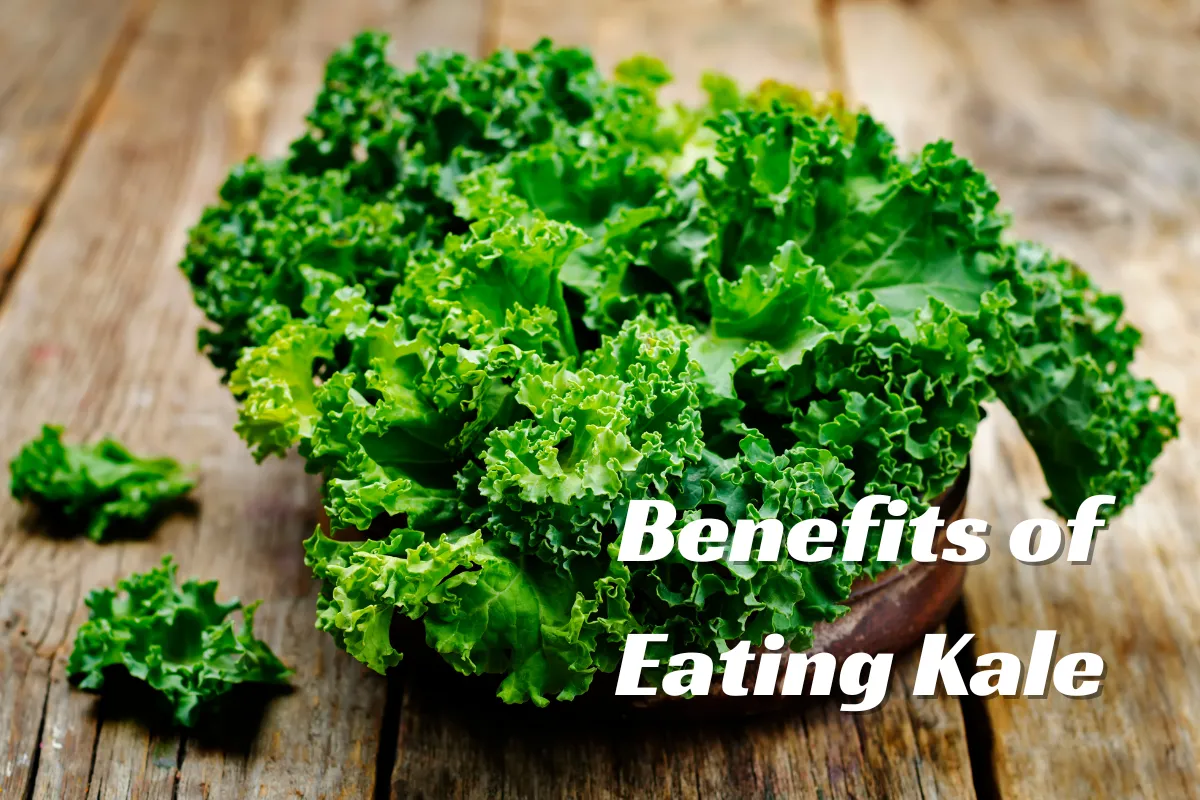In the vast world of leafy greens, kale stands out as a nutritional powerhouse, offering an array of health benefits that go beyond its vibrant green appearance.
Packed with essential nutrients, kale has gained widespread popularity as a superfood in recent years.
In this article, we’ll delve into the numerous advantages of incorporating kale into your diet, exploring its impact on overall health and well-being.
Kale – A Nutrient-Rich Marvel
Kale, a member of the cruciferous vegetable family, is renowned for its exceptional nutrient profile.
Bursting with vitamins A, C, and K, as well as minerals like iron and calcium, kale serves as a nutritional treasure trove for those seeking a wholesome diet.
Antioxidant Arsenal – Fighting Free Radicals with Kale
One of the standout benefits of kale lies in its potent antioxidant content.
These antioxidants, including beta-carotene and quercetin, play a crucial role in neutralizing free radicals, protecting cells from oxidative stress, and potentially lowering the risk of chronic diseases.
Kale’s Heart-Healthy Properties – A Green Shield for Cardiovascular Health
Incorporating kale into your meals can contribute to heart health.
The high fiber, potassium, and omega-3 fatty acids found in kale may help lower cholesterol levels, regulate blood pressure, and support overall cardiovascular well-being.
Bone Boost – Kale’s Contribution to Skeletal Strength
Beyond its leafy exterior, kale harbors a substantial amount of calcium and vitamin K, both pivotal for bone health.
Regular consumption of kale may aid in maintaining bone density, reducing the risk of osteoporosis, and promoting overall skeletal strength.
Kale for Weight Management – A Low-Calorie, High-Nutrient Option
For those on a journey to shed some pounds, kale proves to be an invaluable ally.
With its low calorie and high nutrient content, kale can be a staple in weight management, offering a satisfying and nutritious addition to meals without contributing excess calories.
Visionary Veggie – How Kale Supports Eye Health
Protecting your eyesight goes beyond just carrots.
Kale’s rich content of lutein and zeaxanthin, two essential antioxidants, may contribute to maintaining healthy eyes and reducing the risk of age-related macular degeneration.
Kale’s Immune-Boosting Powers – Fortify Your Defense System
In the quest for a robust immune system, kale emerges as a key player.
Packed with vitamin C, kale supports the production of white blood cells, enhances immune function, and helps the body fend off infections and illnesses.
Skin Deep – Kale’s Contribution to Radiant Skin
Achieving radiant skin involves more than just topical treatments.
The vitamins A and C in kale contribute to skin health from the inside out, promoting collagen production, reducing inflammation, and giving your skin a natural, healthy glow.
A Green Detox – Kale’s Cleansing Abilities
Kale’s high fiber content aids in digestion and supports the body’s natural detoxification processes.
Including kale in your diet can help flush out toxins, promoting a clean and healthy digestive system.
Kale in the Kitchen – Creative Ways to Enjoy This Superfood
Making kale a regular part of your diet doesn’t mean sticking to bland salads.
Explore creative ways to incorporate kale into your meals, from sautéed kale with garlic to kale smoothies that pack a nutritional punch.
The Kale Controversy – Debunking Myths and Misconceptions
While kale boasts numerous benefits, there are often misconceptions surrounding its consumption.
Addressing concerns and debunking myths ensures that individuals can make informed decisions about including kale in their diet.
Organic vs. Conventional Kale – Making the Right Choice
Delving into the organic versus conventional kale debate, this section explores factors such as pesticide exposure, environmental impact, and nutritional differences.
Helping readers make an informed decision aligns with a holistic approach to wellness.
Kale Supplements – A Shortcut to Nutritional Excellence?
While fresh kale is undeniably beneficial, exploring the world of kale supplements raises questions about efficacy, safety, and potential drawbacks.
This section offers insights into the pros and cons of kale supplements.
Incorporating Kale into Various Diets – Vegan, Paleo, and Beyond
For those adhering to specific dietary lifestyles, understanding how kale fits into vegan, paleo, and other diets is crucial.
This section provides practical tips and recipes, ensuring that kale becomes a seamless addition to diverse eating habits.
Kale in Every Season – Tips for Year-Round Enjoyment
Whether it’s the abundance of summer or the crispness of fall, finding ways to enjoy kale year-round is key to reaping its benefits consistently.
From seasonal recipes to storage tips, this section ensures kale remains a staple in your diet regardless of the calendar.
Embrace the Green Revolution
In conclusion, the benefits of eating kale extend far beyond its trendy status.
From bolstering your immune system to promoting heart health and contributing to radiant skin, kale is a versatile superfood that deserves a place on your plate.
Embrace the green revolution, experiment with kale-infused recipes, and witness the transformative impact on your overall well-being.
FAQs: Unlocking the Kale Mysteries
Q1: Can I eat kale every day, or is there a limit to its consumption?
A1: While kale is incredibly nutritious, moderation is key.
Eating kale daily is generally safe for most people, but excessive consumption may lead to issues such as kidney stones due to its oxalate content.
Q2: Are there any potential side effects of eating kale?
A2: While rare, some individuals may experience digestive issues or allergies to kale.
It’s advisable to introduce kale gradually into your diet and monitor for any adverse reactions.
Q3: How can I incorporate kale into my child’s diet?
A3: Sneak kale into smoothies, blend it into pasta sauces, or create crispy kale chips as a tasty snack.
Making kale fun and flavorful can encourage children to embrace this nutritious green.
Q4: Does cooking kale diminish its nutritional value?
A4: Cooking kale can alter its nutrient content slightly, but it remains a highly nutritious option.
To preserve maximum nutrients, consider lightly steaming or sautéing kale instead of prolonged boiling.
Q5: Can I freeze kale for later use?
A5: Absolutely! Wash and chop kale, blanch it briefly, then freeze in portions.
Frozen kale works well in soups, stews, and smoothies, maintaining its nutritional value for convenient long-term use.



